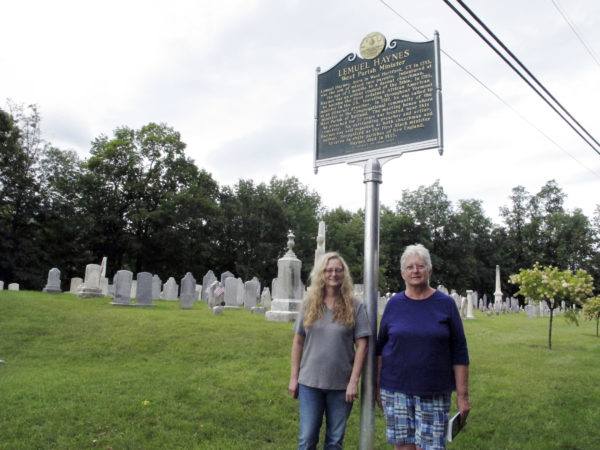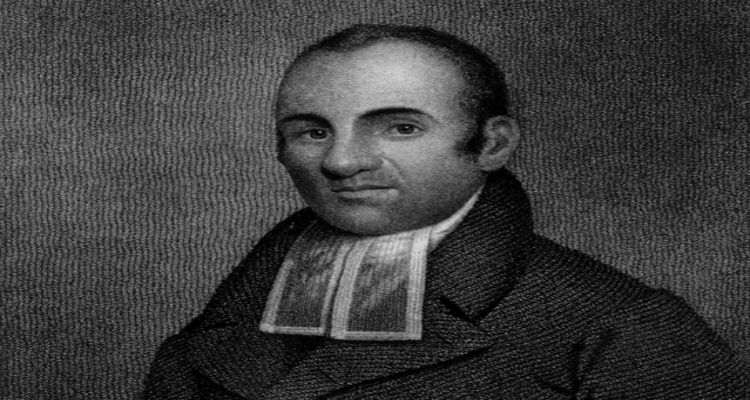
In this Sept. 6, 2018, photo, Michelle Jagodzinski, left, and Mary Reczek, right, of the West Rutland Historical Society in Vermont stand next to a new historical marker honoring Lemuel Haynes, first ordained black minister in the U.S. in West Rutland, Vt. (AP Photo/Lisa Rathke)
More than 220 years after the first ordained black minister in the U.S. became a pastor in a small, predominantly white community in Vermont and preached about brotherly love, freedom and unity, people there are honoring his life and work with an historic marker.
Lemuel Haynes ministered in the Parish of West Rutland for 30 years starting in 1787, drawing people from neighboring communities and hours away, with sermons that historians say at times touched on racial equality.
Local historians say now is an apt time to celebrate the popular preacher and author and inspire others with an historic marker near where the church once stood. The West Rutland Historical Society is holding a public dedication ceremony Saturday.
“I think it is so timely in the fact that we have this African American person that was here so many years ago speaking out for interracial peace and acceptance … And that’s what this whole nation is crying out for that now,” said Michelle Jagodzinski, treasurer of the West Rutland Historical Society.
Haynes was born to a white mother and black father in West Hartford, Connecticut and indentured to a devout churchman at the age of 5 months.

Lemuel Haynes
He read everything he could and became well versed in the Bible, Jagodzinski said.
After leaving his adopted family at 21, Haynes joined the Revolutionary War but arrived too late for the battle at Lexington and Concord. He later wrote a poem about the skirmish, including a line about Americans not wanting to be enslaved by the British. He later penned “Liberty Further Extended” in 1776, making the case that liberty should be extended to all, said William Hart, an associate professor of history at Middlebury College.
“There he begins to connect Republican liberty and virtue with abolition,” Hart said.
Vermont, where Haynes made his home, was the first state to abolish adult slavery.
“He was one of not too many men at the time who believed … that the Declaration of Independence was meant for all people — not just the landed gentry who could vote but also for the blacks,” said Mary Reczek, vice president of the historical society, who lives just down the road from where the church once stood next to a cemetery.
Nine years later Haynes was ordained a minister and served in a church in Torrington, Connecticut for three years before being called to minister in Vermont where other Connecticut residents had moved. He’s widely acknowledged to be the first African American ordained minister in the U.S.
Not only was he extremely well versed in the Bible but he also had a humility and wit, Reczek said.
He was let go from the congregation in 1818, but the accounts differ on why. Some historians believe it was about a doctrinal dispute within the church and others say it was because of his race.
He later served as a preacher in Manchester, Vermont, and then in South Granville, New York, where he’s buried. His contributions were noted at the time by Middlebury College, which granted him an honorary master’s degree in 1804.
Now local historians hope his legacy will gain new attention.
“Here’s a man and a group of people who were principled and worked hard to develop not just their families and their community and their land, and they stood for something. And they all worked together. And the fact that he was of a different race didn’t seem to bother them at all,” said Reczek.
“He’s important. People should know his name. And his contributions should be remembered,” Jagodzinski said.
